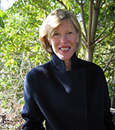
Cynthia Kenyon
Mittwoch, 27. Februar 2008, 18:00 Alte Aula der Ruprecht-Karls-Universität, Grabengasse 1, Heidelberg
Mit freundlicher Unterstützung der Manfred Lautenschläger Stiftung in Zusammenarbeit mit dem Netzwerk Alternsforschung
Cynthia Kenyon
Hillblom Center for the Biology of Aging at UCSF
Genes From the Fountain of Youth
Aging has long been assumed to be a passive consequence of molecular wear and tear. But it's not so simple. Our discoveries have led to the realization that the aging process, like everything else in biology, is under exquisite regulation, in this case, by a complex, multifaceted hormonal and transcriptional system that affects aging in many species, including mammals. In 1993, we showed that changing a single gene in the small roundworm C. elegans can double its lifespan. This gene encodes an insulin/IGF-1 like receptor, which indicates that aging is regulated hormonally. By manipulating genes and cells, we have now been able to extend the lifespan and period of youthfulness of healthy, active C. elegans by six times. We have found that signals from the reproductive system and sensory neurons influence the lifespan of C. elegans, and these processes, too, may be evolutionarily conserved. These signals act, at least in part, to control the expression of a wide variety of subordinate genes, including antioxidant, stress response, antimicrobial, and novel genes, whose activities act in a cumulative fashion to determine the lifespan of the animal. Some of these subordinate genes can also influence the progression of age-related disease. In this way, this hormone system couples the natural aging process to age-related disease susceptibility.
Cynthia Kenyon graduated valedictorian in chemistry and biochemistry from the University of Georgia, USA, in 1976. She received her PhD from MIT in 1981, where, in Graham Walker's laboratory, she was the first to look for genes on the basis of their activity profiles, discovering that DNA damaging agents activate a battery of DNA repair genes in E. coli. She then did postdoctoral studies with Nobel laureate Sydney Brenner at the MRC Laboratory of Molecular Biology in Cambridge, UK, studying the development of C. elegans. Since 1986 she has been at the University of California, San Francisco, where she was the Herbert Boyer Distinguished Professor of Biochemistry and Biophysics and is now an American Cancer Society Professor.
In 1993, Dr. Kenyon's discovery that a single-gene mutation could double the lifespan of C. elegans sparked an intensive study of the molecular biology of aging. Dr. Kenyon's findings have now led to the discovery that an evolutionarily-conserved hormone signaling system controls aging in other organisms as well, including mammals.
Kenyon has received many honors, including the King Faisal Prize for Medicine, the American Association of Medical Colleges Award for Distinguished Research, the Ilse & Helmut Wachter Award for Exceptional Scientific Achievement, La Fondation IPSEN Prize, and the Inspire Award from the AARP. She is a member of the US National Academy of Sciences, the American Academy of Arts and Sciences, and the US Institute of Medicine, and she has received an honorary doctorate from the University of Paris. She is now the director of the Hillblom Center for the Biology of Aging at UCSF.